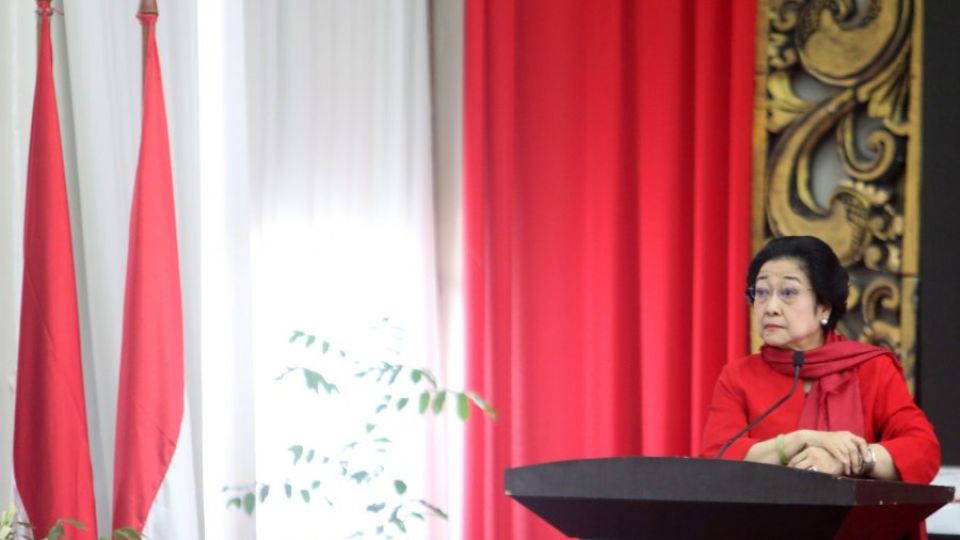March 22, 2023
JAKARTA – Functions held by the Indonesian Democratic Party of Struggle (PDI-P) are akin to state events during the administration of President Joko “Jokowi” Widodo, with full media coverage and the attendance of dignitaries. This includes the party’s golden jubilee on Tuesday at the fully packed Jakarta International Expo in Kemayoran, Central Jakarta.
President Jokowi, who is a PDI-P member, Vice President Maruf Amin and nine Cabinet members, including Coordinating Political, Legal and Security Affairs Minister Mahfud MD; Foreign Minister Retno Marsudi; Education, Culture, Research and Technology Minister Nadiem Makarim; and Public Works and Housing Minister Basuki Hadimuljono, were present and appeared to pay full attention to party chairwoman Megawati Soekarnoputri’s as she delivered her speech and, to some extent, sermon about political issues.
In an apparent effort to show who the boss was, Megawati roasted President Jokowi and his ministers.
“Pak Jokowi without the PDI-P – now that would be a pity,” Megawati said, in an echo of a 2015 statement where she referred to the recently elected President Jokowi as a “party officer”. Megawati also reminded Jokowi that the Constitution limited his tenure to two five-year terms, an apparent response to calls to extend Jokowi’s time in office.
Megawati also criticized Nadiem for not doing enough to protect local languages, some of which she said were vanishing. According Megawati, local languages are as important as English, which United States-educated Nadiem is deeply comfortable in.
Megawati also recalled her role in making Retno Indonesia’s first female foreign minister. Megawati said she insisted that Jokowi appoint a woman for the chief diplomatic post.
The way Megawati treated her guests during the event speaks volumes about her influence on the government. The party, under her leadership, won the last two elections, and a number of opinion surveys predict it will score a hat trick with the 2024 polls.
With its double success in 2019, winning both the legislative and presidential elections, the PDI-P further cemented its grip on national politics. Apart from holding four ministerial posts in the current Cabinet, the party has members in strategic posts, such as the Attorney General’s Office (AGO) and State Intelligence Agency (BIN).
The PDI-P has also performed well in regional elections. In June of last year, the party gathered 215 regional heads and deputy regional heads in Jakarta to ask them to sign an integrity pact.
As the old adage goes, with great power comes great responsibility. The question is whether the PDI-P has lived up to those expectations.
The House of Representatives, in which PDI-P holds 128 of the 575 seats, has hardly stood up to the government when it comes to the passage of controversial laws such as the new Criminal Code, the new Corruption Eradication Commission (KPK) Law and the Job Creation Law, despite the flaws in their drafting and their antidemocratic content.
As the country’s largest party, the PDI-P must articulate people’s aspirations and defend them from abuses of power, even when the party itself is holding the reins. After all, the PDI-P has always claimed to be the party of wong cilik (ordinary people).


